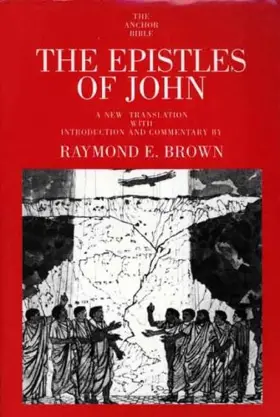

The Epistles of John
Pages
840
Publisher
Yale University Press
Published
1/1/1982
ISBN-13
9780300140279
With this study—companion to the masterful two-volume The Gospel According to John—Raymond E. Brown completed his trilogy on the Johannine corpus. Meticulous in detail, exhaustive in analysis, persuasive in argument, it examines controversies that have long troubled both biblical scholars and lay readers. Questions of authorship, composition, and dating, as well as the debate over source theories, are discussed at length; but these are kept subordinate to the overall question of meaning.
What gives this commentary special interest and excitement is the bold, imaginative reconstruction of the setting of the Johannine work—in particular of the “opposition figures,” who are only dimly sketched in the Epistles—so that we see clearly that the author is writing to his flock both about the dangers and difficulties confronting them, and about the eternal life that is theirs by the gift of God. In this way, the Epistles of John become intelligible as broadsides in a critical engagement between the forces of light and darkness.
In addition to his superb textual analysis of the letters, Raymond Brown has brought to life the community in which these works were formed and shaped. We are forcefully reminded that the Gospel and the Epistles were addressed to very real people living in the first century a.d., people with religious problems not unlike our own. In all respects, The Epistles of John stands out as a model of biblical scholarship and study.
What gives this commentary special interest and excitement is the bold, imaginative reconstruction of the setting of the Johannine work—in particular of the “opposition figures,” who are only dimly sketched in the Epistles—so that we see clearly that the author is writing to his flock both about the dangers and difficulties confronting them, and about the eternal life that is theirs by the gift of God. In this way, the Epistles of John become intelligible as broadsides in a critical engagement between the forces of light and darkness.
In addition to his superb textual analysis of the letters, Raymond Brown has brought to life the community in which these works were formed and shaped. We are forcefully reminded that the Gospel and the Epistles were addressed to very real people living in the first century a.d., people with religious problems not unlike our own. In all respects, The Epistles of John stands out as a model of biblical scholarship and study.
Collections
This book appears in the following featured collections.
- Favorite Advanced NT Commentaries by Jeremy Pierce (parableman)
- Best Exegetical Commentaries by Jim Rosscup
- New Testament Advanced Commentaries by Moore Theological College Journal: Societas
- The Pastor’s Bookshelf by Scot McKnight
- New Testament Commentaries & Monographs by Princeton Theological Seminary
- Nijay Gupta's Top NT Commentaries by Nijay K. Gupta
- Recommended New Testament Commentaries for Evangelical Pastors by Thomas R. Schreiner
- Commentaries by Roman Catholic Scholars by John Dyer
Reviews
This is among the best commentaries on 1 John. I would place Dr. Harris and Dr. Brown as equals among the best exegetical commentaries that also include relevant historical and cultural background notes.
A must have; the most comprehensive, insightful, profound commentary on 1-3 John, by *THE* leading expert in the Johannine corpus in the 20th century. This should be required reading for study of the Epistles of John. Brown covers all the bases; lexicography, intertextuality, historical background, theological interpretation, textual criticism, etc.
Massive commentary (over 800 pages) by the most influential Roman Catholic biblical scholar of the twentieth century (taking a moderately critical approach).
[Full Review]
This is a massive and dense work that will reward the diligent researcher and nicely complement Brown’s huge two-commentary volume on the gospel of John. Here he provides 840 pages of commentary on about 5 pages of biblical text! While few readers will agree with all of his positions, he certainly has an exhaustive grasp of the Johannine epistles and great respect for the text.
[Full Review]
Along with his commentary on the Gospel of John and his Introduction to the Gospel of John (completed by Maloney after Brown’s death), this commentary is one of the most significant contributions to the study of the Johannine literature in the twentieth century. Brown introduced his views on the Johannine community in his commentary on the Gospel of John and develops it further in this commentary. I highly recommend the 130 page introduction to the commentary as required reading for anyone working seriously in John. While interest in his theory of the “Johannine Community” has waned, it is hard to read a commentary on John’s Gospel or Letters which do not engage Brown on nearly every page. At almost 800 pages, this commentary on the Epistles of John is the most detailed exegetical commentary available. The commentary proceeds through the text word-by-word, dealing with lexical and syntactical matters. Greek appears only in transliteration, all sources are cited in-text. After the detailed note section, Brown provides a “comment” in the overall theology of the pericope, often connecting it to his previous work on the Gospel of John. These comments all assume his Johannine community theory. Sections end with a bibliography pertinent to that section.
[Full Review]
Surely the most complete, if not also at times speculative, commentary is that of Raymond E. Brown
[Full Review]








